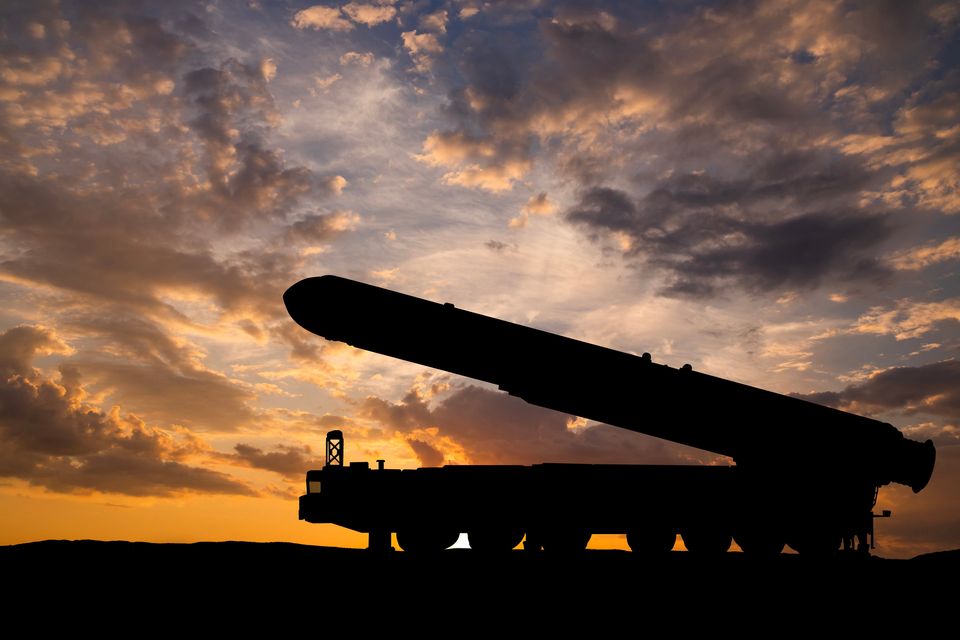World
Russia’s Novator Missile System Sparks Concern Over NATO Security

A recent launch of the Novator 9M729 cruise missile system by Russia has raised serious concerns regarding NATO’s security. This missile, capable of carrying both conventional and nuclear warheads, has been employed against Ukrainian targets at least 23 times since August 2023. Ukrainian officials argue that its deployment represents a significant threat to regional stability and has called attention to the implications for NATO’s defense posture.
The 9M729 missile is designed specifically to strike Europe, with a reported range of up to 2,500 kilometers. This capability has prompted Ukrainian President Volodymyr Zelensky to appeal for U.S. support, particularly in the form of acquiring Tomahawk missiles, which share similar specifications. Zelensky’s request highlights the pressing need for Ukraine to bolster its defenses as Russia escalates its aerial assaults on cities and critical infrastructure.
Historical Context of the INF Treaty
The background of the Novator 9M729 is steeped in controversy. In 2019, Russia’s refusal to destroy its stockpiles of this missile led to the dissolution of the Intermediate-Range Nuclear Forces (INF) Treaty, originally signed in 1987 by U.S. President Ronald Reagan and Soviet leader Mikhail Gorbachev. The treaty aimed to eliminate all ground-launched nuclear and conventional missiles with ranges between 500 km and 5,500 km.
Despite Russia’s claims that the 9M729 could only fly 480 km, the Missile Threat website, operated by the Centre for Strategic and International Studies in Washington, indicates that the missile can indeed cover distances up to 2,500 km. This discrepancy has significant implications for European security, as NATO countries could find themselves within range of a missile capable of delivering nuclear payloads.
Ukrainian sources reported that one of the 9M729 missiles launched into Ukraine on October 5, 2023, traveled 1,200 km, striking the village of Lapaivka in the Lviv region. The attack resulted in the tragic deaths of a family of four, including a 15-year-old girl. Such incidents underscore the urgency of Ukraine’s calls for enhanced military support from Western allies.
Implications for NATO and Future Security
The emergence of the 9M729 system has prompted Ukrainian officials to urge Donald Trump, who has previously expressed skepticism about military aid to Ukraine, to reconsider his position on the sale of Tomahawks. Zelensky and his administration assert that acquiring these advanced missiles would help level the playing field against Russia’s aggressive military operations.
Andrii Sybiha, Ukraine’s foreign minister, emphasized the significance of the 9M729’s use, remarking, “Russia’s use of the INF-banned 9M729 against Ukraine in the past months demonstrates Putin’s disrespect to the United States and President Trump’s diplomatic efforts to end Russia’s war against Ukraine.” This statement reflects the broader sentiment among Ukrainian officials that Russia is disregarding diplomatic initiatives aimed at resolving the conflict.
Analysts warn that the implications of Russia’s deployment of the 9M729 extend far beyond Ukraine. John Foreman, a former UK defence attaché to Moscow and Kyiv, noted that the use of previously denied INF-range missiles poses a serious threat to European security. He described the dissolution of the INF Treaty as “the single most destabilising thing to happen to wider NATO security since 1990, with the exception of the invasion.”
As NATO continues to respond to the evolving security landscape, the alliance has increased its conventional military presence in Eastern Europe and ramped up intelligence operations. The ongoing situation calls for a reassessment of NATO’s strategic posture, particularly in light of the new capabilities demonstrated by Russia’s missile systems.
In summary, the deployment of the Novator 9M729 cruise missile represents a stark reminder of the shifting dynamics of regional security. As Ukraine seeks to counter this threat and secure additional military aid, the implications of Russia’s actions will undoubtedly shape the future of NATO and its collective defense strategies.
-

 Top Stories2 months ago
Top Stories2 months agoTributes Surge for 9-Year-Old Leon Briody After Cancer Battle
-

 Entertainment3 months ago
Entertainment3 months agoAimee Osbourne Joins Family for Emotional Tribute to Ozzy
-

 Politics3 months ago
Politics3 months agoDanny Healy-Rae Considers Complaint After Altercation with Garda
-

 Top Stories3 months ago
Top Stories3 months agoIreland Enjoys Summer Heat as Hurricane Erin Approaches Atlantic
-

 World4 months ago
World4 months agoHawaii Commemorates 80 Years Since Hiroshima Bombing with Ceremony
-

 Top Stories2 months ago
Top Stories2 months agoNewcastle West Woman Patricia Foley Found Safe After Urgent Search
-

 Top Stories4 months ago
Top Stories4 months agoFianna Fáil TDs Urgently Consider Maire Geoghegan-Quinn for Presidency
-

 World4 months ago
World4 months agoGaza Aid Distribution Tragedy: 20 Killed Amid Ongoing Violence
-

 World4 months ago
World4 months agoCouple Convicted of Murdering Two-Year-Old Grandson in Wales
-

 Top Stories3 months ago
Top Stories3 months agoHike Donegal’s Errigal Mountain NOW for Unforgettable Summer Views
-

 World4 months ago
World4 months agoAristocrat Constance Marten and Partner Convicted of Infant Murder
-

 Top Stories3 months ago
Top Stories3 months agoClimbing Errigal: A Must-Do Summer Adventure in Donegal









